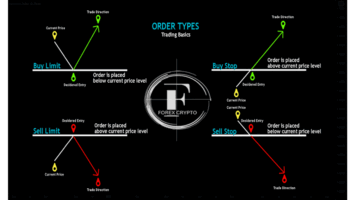Commentary from a Guest Writer on the Top 10 Trading Myths
Dr. GARY DAYTON FROM TRADING PSYCHOLOGY EDGE DISCUSSES SOME COMMON MISCONCEPTIONS ABOUT TRADING
It is crucial to one’s long-term success in trading to be aware of the differences between popular trading myths and the truth. Dr. Gary Dayton, a guest editor for this piece, debunks the top 10 trading fallacies readers should know. These misconceptions are connected to trading psychology, an essential component of a successful trading profession.
- People have a natural inclination to engage in commerce. Although it is true that some personal attributes make it simpler to trade, no one is born a trader. Traders have to develop their skills over time. Jack Schwager’s writings on the subject of “Market Wizards” revolve around a number of central themes, one of which is that nearly none of the market wizards were successful from the very beginning of their careers. They each put forth a lot of effort toward doing it.
- A high intelligence level is required for successful trading. That is not the case. Having an above-average IQ may work against you in some situations. Trading is a human performance activity, and it is optional to have particularly great intellectual talents to participate.

- Successful traders have what is referred to as the “right trading personality.”There is no such thing as the “right trading personality.” There is no “right trading personality.” The success of a trader’s personality type has not been shown to have a significant association with previous research findings. On the other hand, it is essential to have a good understanding of your personal qualities and the ways in which they might either aid or impede your trading. Learn more about the various trading methods that suit different personalities by reading more about the topic.
- Engaging in business is simple. It seems to point in that direction. Follow the price bars on the chart, monitor your indicators, and draw a few lines on the chart. The reality is that success in trading is a formidable accomplishment. It requires a unique collection of skills and skill sets compared to those required in most other jobs and professions. To successfully navigate the mental and emotional challenges of trading, a trader has to have an in-depth understanding of their own capabilities and the areas in which they struggle. The latter talents are the ones that are hardest to learn and the ones that are neglected the most.
- If you want to be successful, you have to be rough around the edges, relentless, and brave. That is more the result of the hype generated by the media than anything else. It extols the virtues of having a robust ego, a trait detrimental to trading. The most successful traders I know are the ones who are patient, conduct their homework in private, analyze the charts, and wait for the proper opportunity to act. They make it a point to trade without letting their ego get in the way.
- You must not let your emotions affect your trading. Which is not conceivable if you are a human being. Most importantly, if you understand your feelings, you will see that they are tangible assets rather than burdens. These are the genuine secrets:
- Be conscious of how your emotions interact with and are influenced by your trade: and
- To acquire the knowledge and abilities necessary to do business with them.

- The most successful traders are almost always correct about the market. Even the most successful traders have many losses and scratch deals. Successful traders are successful because they can practice strong risk management, restrict the amount of loss that may result from any particular transaction, and cultivate a psychological advantage that enables them to remain unfazed even while making tiny losses on trades. The vast majority of their trading results in minimal earnings and losses. They increase their position size and then let lucrative trades run when the circumstances are favorable.
- Paper trading is pointless since no actual transaction occurs when no money is involved. You are doing yourself a disservice if you are not participating in paper trading. You should constantly practice your trading ideas via paper trading. Why should the amount of money you have influence the amount of education and experience you can get? Paper trading helps keep you sharp since it teaches you the market circumstances most conducive to successfully applying your trading concepts. Where else can you receive such an important education for such a small amount?
- If you want to be successful, you need to master technical skills, Even though this is where most traders spend most of their time, it’s still a piece of the puzzle, In addition to this, you will need to develop essential performance abilities, Traders should spend at least as much time studying to create their psychological trading edge as they do learning to develop their technical trading edge, If not more time, traders should focus on creating their psychological trading edge.
- Engaging in trading might be stressful, It has the potential to be stressful, and in many cases, it is stressful, It is not necessary in any way, The brains of successful traders think in a specific way, They don’t place much weight on any one particular trade, Their attention is on the process rather than the outcome, They know that if they pay attention to the areas of trading under their control (such as trade selection, entry, risk control, and trade management), the profits will take care of themselves automatically.




Comments (No)